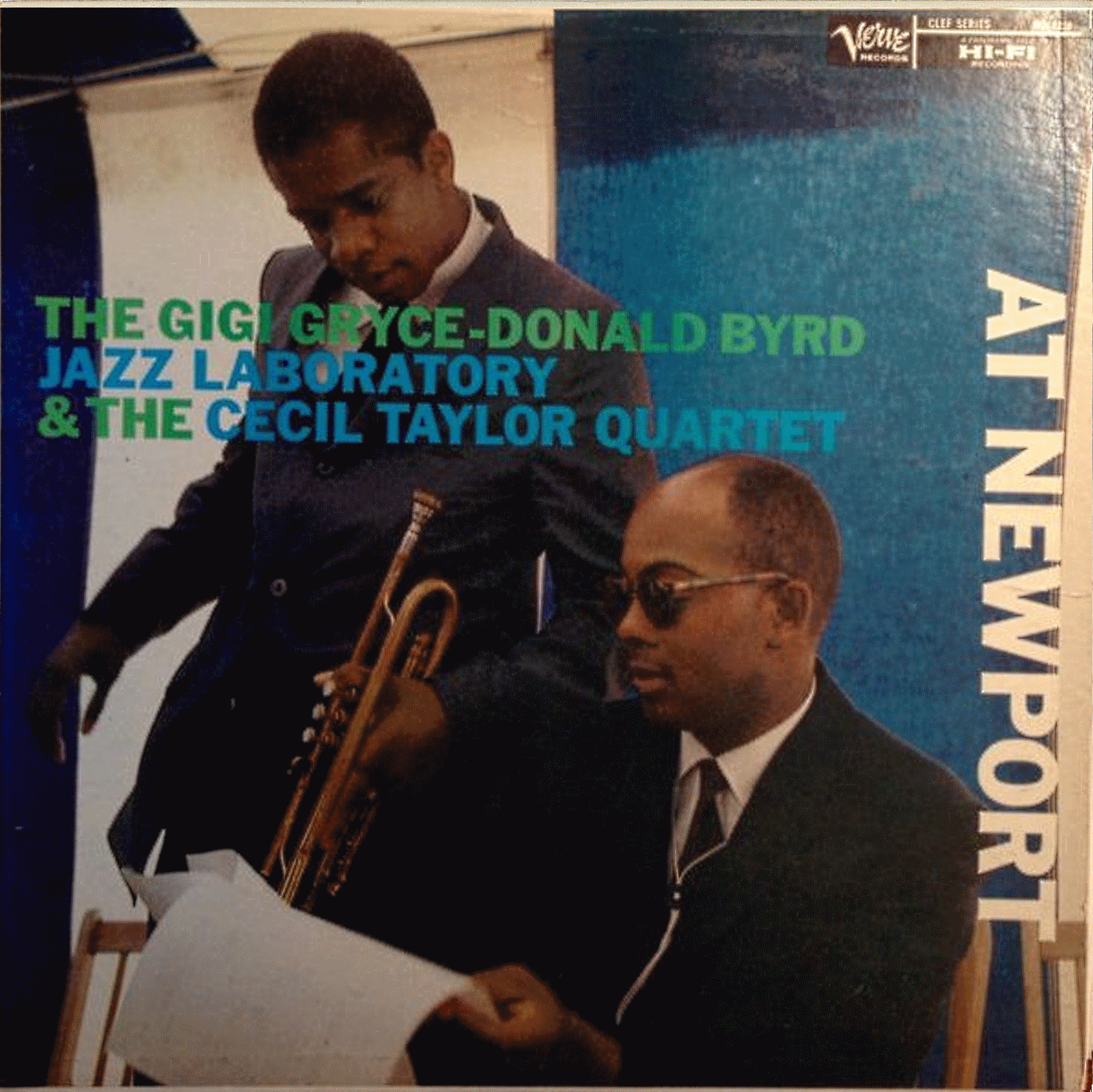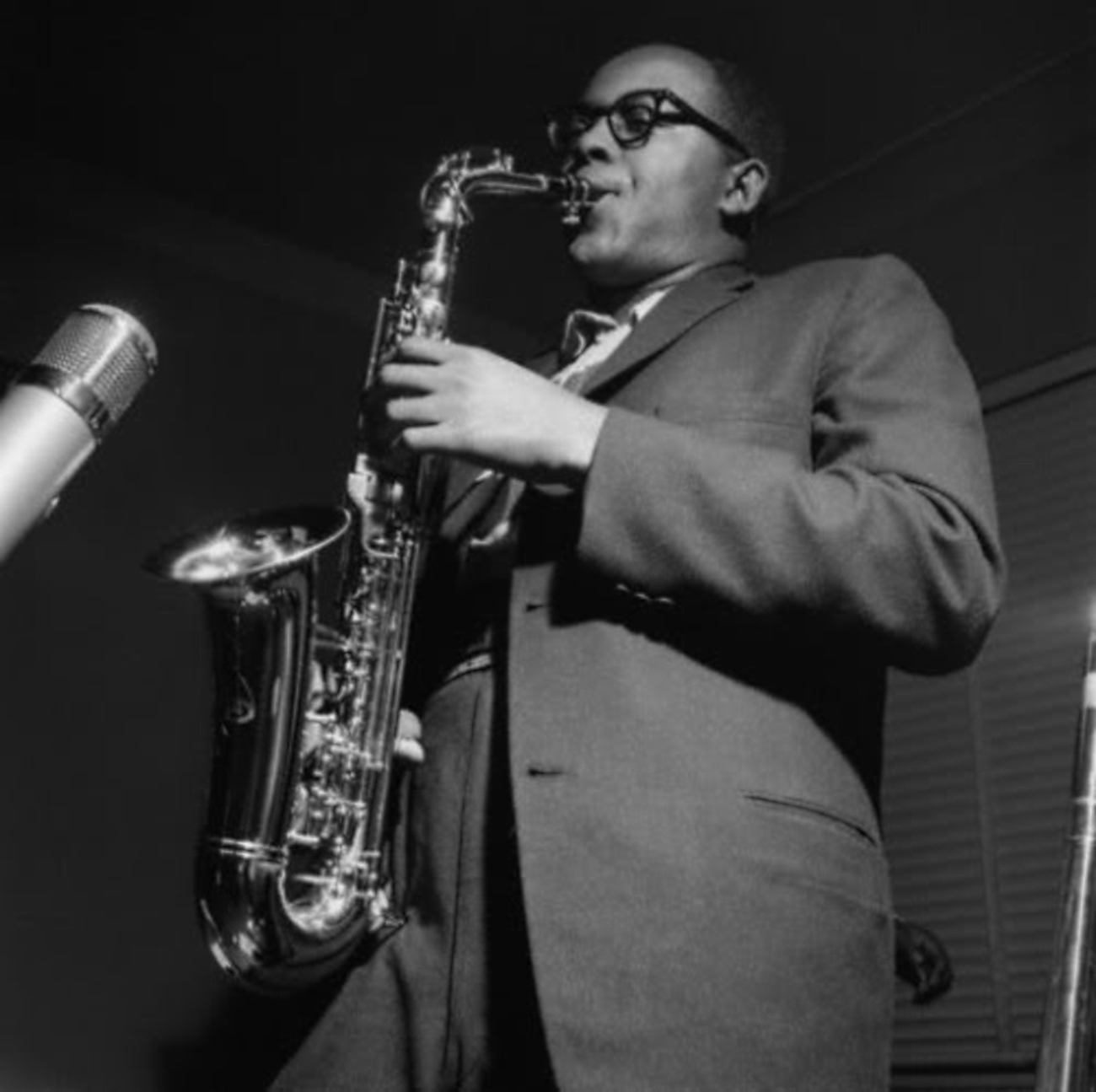On The Trail Of Old Albums
Label: Verve Records – MG V-8238
Format: Vinyl, LP; Country: US - Released: 1957
Style: Free Jazz, Post Bop
Recorded live at Newport Jazz Festival on July 6, 1957 (tracks A1 to A3) and July 5, 1957 (tracks B1 to B3).
Liner Note By – Bill Simon
Photographer By – Burt Goldblatt
Photographer By – Burt Goldblatt
Jazz on a Summer’s day, the audience is cool, Newport Rhode Island sounds a great place to have been, Freebody Park.
Cecil Taylor Quartet is almost easy-listening, with the rhythm section holding down the base, Steve Lacy’s straight horn carrying melody, while Taylor begins to disassemble the piano convention. At times, it sounds like Taylor is playing a different number to the rest of the band. Perhaps that’s the thing.
The short-lived Gigi Gryce Jazz Laboratory quintet was formed to extend and seek out new directions for bebop. It’s all in the American pronunciation: I get Ceecil Taylor, now I learn it’s G.G. Gryce, not Gigi. This was apparently the only live recording of the Jazz Laboratory.
Cecil Taylor Quartet:
CECIL TAYLOR (piano); STEVE LACY (soprano saxophone); BUELL NEIDLINGER (bass); DENIS CHARLES (drums)
A1 - Johnny Come Lately . . . 7:13
A2 - Nona's Blues . . . 7:40
A3 - Tune 2 . . . 10:22
Gigi Gryce-Donald Byrd Jazz Laboratory Quintet:
GIGI GRYCE (alto saxophone); DONALD BYRD (trumpet); HANK JONES (piano); WENDELL MARSHALL (bass); OSIE JOHNSON (drums)
B1 - Splittin' (Ray's Way) . . . 8:32
B2 - Batland . . . 7:21
B3 - Love For Sale . . . 7:34
The young pianist Cecil Taylor and saxophonist Gigi Gryce
At first combining a set by Cecil Taylor with another by the Gigi Gryce-Donald Byrd Jazz Laboratory seems like an odd pairing, but it ends up working rather well. These live recordings, which come from the 1957 Newport Jazz Festival, have stood the test of time rather well.
It is a fascinating contrast between an original angle on the then popular hard-bop style (Byrd/Gryce) and the revolutionary Taylor's extraordinary evolution beyond it. Steve Lacy plays soprano saxophone throughout Taylor's set, and he foreshadows John Coltrane's sound on the same instrument a few years later. Lacy's unlubricated, slightly sour tone and eventually curiously hopping swing develop the spontaneous possibilities of Billy Strayhorn's Johnny Come Lately against Taylor's relentlessly angular piano figures. The original Nona's Blues is a mid-tempo, nearly-swinging tune for the leader's pounding chords and fragmentary melodic clusters alongside Lacy's loose and exuberant solo. Taylor's evolution explicitly deployed a lot more European contemporary classical elements later, but his jazzy momentum and affection for Thelonious Monk are exhilaratingly up-front here.
The Gryce/Byrd band, though closer to the usual jazz grooves of the day, is enhanced by Gryce's distinctive writing. Pianist Hank Jones plays with gleaming urbanity, the young Donald Byrd with a crackling boppish bounce, though Gryce's Parker-influenced alto lines are a little thin. But it is the mix of styles here, pointing up Cecil Taylor's astonishing independence, that makes the set so attractive.
_ By JOHN FORDHAM, The Guardian
If you find it, buy this album!



